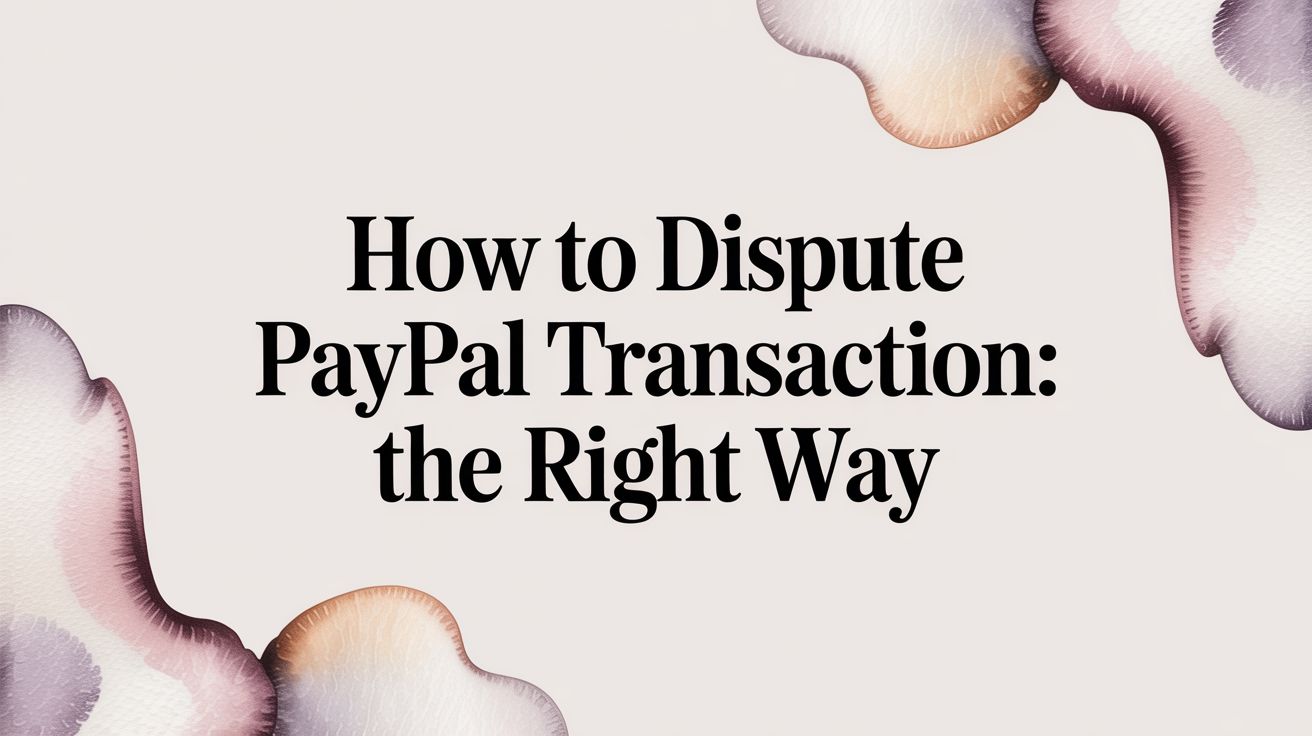
American Express (Amex) serves both an issuer and a card network simultaneously.
This dual role sets it apart from other card networks, resulting in different time limits and policies governing the chargeback process.
Unlike traditional banking institutions, Amex's multifaceted role introduces complexities and nuances that merchants and cardholders must navigate when addressing disputes.
Understanding Amex chargebacks is crucial for merchants and cardholders to effectively manage and respond to disputes.
Amex's specific guidelines can significantly differ from those of other card networks, necessitating a thorough understanding of its policies and procedures.
Chargeback management is a critical aspect of operating a successful business, and comprehending the nuances of Amex's chargeback process is essential for merchants seeking to protect their bottom line.
Let's explore how merchants can effectively manage and win American Express chargebacks within the required time limits.
Are Amex Chargebacks Different from Other Networks?
American Express chargebacks present distinctive characteristics compared to other card networks.
Unlike mainstream banking institutions, Amex operates as both a card network and an issuing bank. This dual role gives Amex a unique position in the chargeback process.
One significant difference is that Amex chargeback filers are often its customers. This means that when disputes arise, they involve merchants and Amex cardholders directly.
As a result, the dynamics of resolving chargebacks can differ from other networks where the issuer may not have a direct relationship with the cardholder.
Furthermore, Amex's role as both a card network and an issuing bank constrains a merchant's ability to challenge what they perceive as invalid chargebacks.
Since Amex handles both sides of the transaction, it has different procedures or limitations than other networks.
This aspect influences how merchants navigate the chargeback process and underscores the importance of understanding Amex-specific policies and procedures.
Overall, the unique structure and practices of American Express as both a card network and an issuing bank contribute to differences in how chargebacks are handled compared to other networks.
These differences have implications for merchants and underscore the importance of being well-versed in Amex chargeback policies and procedures.
American Express Chargeback Time Limit for Cardholders
For American Express cardholders, understanding the time limits for initiating a chargeback is crucial.
Unlike some other card networks that have a 120-day limit, American Express typically allows cardholders up to 120 days from the transaction date to dispute a charge.
However, there are exceptions to this standard time limit, particularly for certain Amex reason codes such as C04, C05, and C08.
These reason codes may involve specific circumstances that warrant an extension beyond the standard 120-day timeframe.
For instance, C04 relates to goods/services not received or not as described, C05 pertains to goods/services canceled or returned, and C08 involves duplicate processing.
In these cases, the chargeback time limit may be extended to accommodate the circumstances outlined in these reason codes.
Additionally, redisputes, which occur when a chargeback is disputed again after an initial decision, may also have different time limits.
The time limit for redisputes is typically shorter than the initial chargeback window, often around 20 days, depending on the specific circumstances and reason codes involved.
Understanding these nuances in American Express chargeback time limits is essential for cardholders to ensure they take appropriate action within the required timeframe.
It also underscores the importance of familiarizing oneself with Amex reason codes to navigate the dispute process effectively.
How Cardholders Can Initiate an American Express Chargeback in a Given Time Limit?
Initiating an American Express chargeback within the designated time limit is a straightforward process for cardholders.
To ensure they meet the requirements and deadlines, cardholders should follow these steps:
1. Review the Transaction
Cardholders should carefully review their billing statements and transaction details to identify any unauthorized or disputed charges.
2. Contact American Express
Upon identifying a transaction to dispute, cardholders should promptly contact American Express customer service. They can typically do this by calling the number on the back of their card or logging into their online account.
3. Provide Necessary Information
During the dispute process, cardholders will need to provide specific information about the disputed transaction, including details about the merchant, transaction date, amount, and reason for the dispute. Providing accurate and detailed information helps expedite the resolution process.
4. Submit Supporting Documentation
Depending on the nature of the dispute, cardholders may be required to submit supporting documentation, such as receipts, correspondence with the merchant, or any other relevant evidence to substantiate their claim.
5. Adhere to Time Limits
Cardholders need to initiate the chargeback within the designated time limit, typically within 120 days from the transaction date. Failure to do so may result in the inability to dispute the charge or delays in resolution.
By following these steps and adhering to the specified time limits, cardholders can effectively initiate an American Express chargeback and seek resolution for disputed transactions.
It's important to act promptly and provide all necessary information to facilitate a timely and efficient resolution process.
American Express Chargeback Time Limit for Merchants
Merchants dealing with American Express chargebacks must adhere to specific time limits to respond effectively to inquiries and contest chargebacks.
Understanding these time limits is crucial for merchants to navigate the chargeback process efficiently.
Here's what merchants need to know:
1. Response to Inquiry
Upon receiving an inquiry, which is a request for information regarding a disputed transaction, merchants have 20 days from the inquiry date to respond.
Merchants need to provide comprehensive and timely responses to inquiries to address cardholder concerns and potentially prevent chargebacks.
2. Contesting Chargebacks
If an inquiry response leads to the issuance of a chargeback, merchants have 20 days from the chargeback date to contest it.
Similarly, if a chargeback is issued directly from a customer dispute without prior inquiry, merchants still have 20 days from the chargeback date to contest it.
Adhering to these time limits is critical for merchants to effectively dispute chargebacks and potentially recover lost revenue.
Failure to respond within the specified timeframe may result in the inability to contest the chargeback or delays in the resolution process.
Therefore, merchants should prioritize timely and thorough responses to inquiries and chargebacks to protect their interests and mitigate financial losses.
How to Respond Before the Time Limit Expires?
Merchants facing American Express chargebacks must act swiftly and efficiently to respond before the time limit expires.
Here are steps merchants can take to ensure they meet the required deadlines:
1. Prompt Notification
Upon receiving notification of a dispute or inquiry from American Express, merchants should promptly acknowledge receipt and begin gathering necessary information and documentation to support their case.
2. Review and Analysis
Thoroughly review the details of the disputed transaction, including any supporting documentation provided by the cardholder.
Analyze the validity of the dispute and assess whether it warrants a response.
3. Documentation Preparation
Compile relevant documentation to support the merchant's position, such as sales receipts, order confirmations, shipping records, and any communication with the cardholder.
Ensure that the documentation is organized and easily accessible for submission.
4. Timely Response Submission
Submit a response to the dispute or inquiry within the specified time limit, typically 20 days from the inquiry date or chargeback date.
Ensure that the response is comprehensive, addressing all relevant issues and providing clear explanations and evidence to support the merchant's position.
5. Follow-Up and Monitoring
After submitting a response, monitor the progress of the dispute resolution process closely.
Follow up with American Express as needed to provide additional information or address any further inquiries promptly.
By following these steps and responding before the time limit expires, merchants demonstrate diligence and professionalism in handling American Express chargebacks.
Timely and well-documented responses increase the likelihood of successfully contesting chargebacks and minimizing financial losses for the merchant.
What is Amex's Whole Chargeback Process?
Understanding American Express's chargeback process is essential for merchants and cardholders alike to navigate disputes effectively.
The process typically involves three main stages:
1. Initiation & Notification
The chargeback process begins with the initiation of a dispute by a cardholder.
This may occur when a cardholder identifies an unauthorized or disputed transaction on their statement and contacts American Express to initiate a chargeback.
Upon receiving the dispute, American Express notifies the merchant and requests relevant information and documentation to investigate the claim.
2. Resolution
During the resolution stage, American Express evaluates the evidence provided by both the cardholder and the merchant to determine the validity of the dispute.
This may involve reviewing transaction records, communication between the parties, and any supporting documentation.
Based on its findings, American Express may issue a chargeback to the merchant, reversing the transaction and debiting the merchant's account.
3. Appeal
If a chargeback is issued against the merchant, they have the option to appeal the decision through the chargeback appeals process.
This typically involves submitting additional evidence or documentation to support their case and contest the chargeback.
American Express will review the appeal and make a final determination based on the available information.
Throughout the chargeback process, communication between American Express, the cardholder, and the merchant is essential for resolving disputes effectively.
Timely response and cooperation from all parties help expedite the resolution process and ensure fair outcomes.
Understanding the steps involved in the chargeback process empowers merchants and cardholders to navigate disputes successfully and protect their interests.
How to Prevent Amex Chargebacks as a Merchant?
Preventing American Express chargebacks is crucial for merchants to minimize financial losses and maintain positive relationships with customers.
Here are some effective strategies merchants can implement to reduce the risk of chargebacks:
1. Clear Communication
Ensure that product descriptions, pricing, and terms of sale are communicated to customers before completing a transaction.
Clear communication helps manage customer expectations and reduces the likelihood of misunderstandings that could lead to disputes.
2. Accurate Descriptions and Images
Provide accurate and detailed product descriptions and images to give customers a clear understanding of what they are purchasing.
Misleading or inaccurate representations can lead to customer dissatisfaction and increase the risk of chargebacks.
3. Secure Payment Processing
Implement secure payment processing systems and protocols to protect customer data and prevent fraudulent transactions.
Use encryption and authentication measures to safeguard sensitive information and reduce the risk of unauthorized charges.
4. Prompt Order Fulfillment
Fulfill orders promptly and provide customers with timely updates on order status and shipping information.
Delays in order fulfillment can lead to customer frustration and increase the likelihood of disputes.
5. Responsive Customer Service
Offer responsive customer service to address customer inquiries, concerns, and issues promptly.
Provide multiple channels for customers to contact support, such as phone, email, and live chat, and ensure that inquiries are addressed in a timely and professional manner.
6. Easy Returns and Refunds
Make the returns and refund process easy and transparent for customers to encourage them to resolve issues directly with the merchant rather than initiating chargebacks.
Clear return policies and procedures can help prevent disputes and maintain customer satisfaction.
7. Monitor Chargeback Ratios
Monitor chargeback ratios closely and take proactive measures to address any patterns or trends indicating potential issues.
Identify the root causes of chargebacks and implement corrective actions to prevent future occurrences.
By implementing these preventive measures and maintaining open communication with customers, merchants can significantly reduce the risk of American Express chargebacks and protect their business interests.
Taking a proactive approach to chargeback prevention helps maintain trust and credibility with customers while minimizing the impact on the merchant's bottom line.
Win & Manage American Express Chargebacks in Time Limit
ChargePay offers a comprehensive solution for merchants seeking to effectively manage and win American Express chargebacks within the required time limits.
Leveraging cutting-edge AI technology, ChargePay automates the entire chargeback management process, allowing merchants to reclaim lost revenue and protect their businesses from the financial impact of disputes.
With ChargePay, merchants respond to chargebacks in real-time, leveraging AI-powered representments to boost their win rates and recover up to 80% of previously lost revenue.
By streamlining the chargeback management workflow and providing seamless integration with leading payment processors, including PayPal, Shopify, and Stripe, ChargePay enables merchants to reclaim lost revenue while minimizing manual effort.
With ChargePay's automated process and industry-leading success rates, merchants reclaim over 80% of revenue lost to chargebacks, boost their reputation with acquirers and issuers, and recover 3.5 times the industry average successful chargeback wins.
Experience the ChargePay difference today and win more chargebacks while reclaiming lost revenue with confidence.
.webp)






.svg)







.svg)
.svg)
.svg)